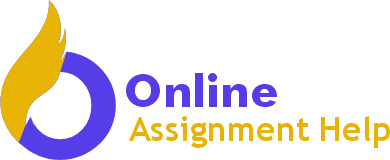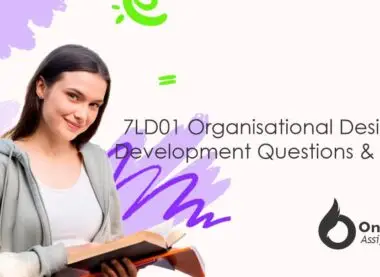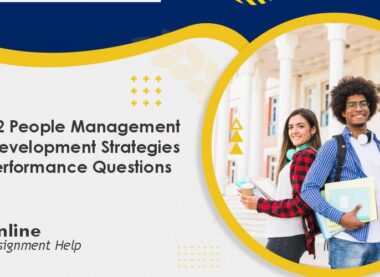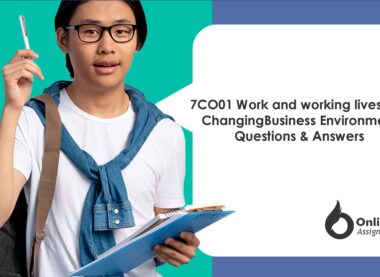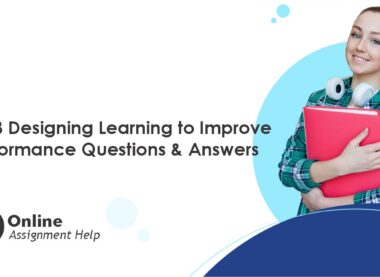About this Unit
The unit in Level 7 of Strategic Learning and Development is compulsory for all students. This unit encompasses rigorous coursework that deepens knowledge of the relationship between the commercial business environments and forecasted development in the future of work, employment, and human resource management. It combines the existing variations in techniques, ideologies, and managerial resources that people practice to enhance organisational performance. It covers a wide range of people practices that are becoming increasingly important such as equality, inclusion, ethics, diversity, employee well-being and sustainability.
What you will learn
With emphasis placed on strategic thinking and handling of complex people management and business decision, this unit enables learners to concentrate on the primary methods used by people practise people and managers while responding to globalisation and its implications on work and employment. It will allow the learners to gain knowledge on the role of people practice professionals in the age of globalisation. Learners will also look at the current and future responses of organisations towards technological change and the new agendas that are developing around the workplace. In doing so, the learners will understand the issues surrounding technology in the work environment and how it affects organisational performance. Furthermore, learners will evaluate the social, economic and demographic trends and learn how people practice is influenced by developments in public policy, thus giving learners a comprehensive insight into the human resource industry. This unit will further help learners examine effective change and leadership and the main relationship between creativity ethics, diversity sustainability, and well-being. Finally, the learners will evaluate policy, practice, corporate social responsibility, and the methods utilised by people professionals to implement and promote them to improve organisational efficiency. Learners are hence aware of how the organisation and the business environment interact, thus acquiring insight into the people practices that influence the workplace and identifying ways to foster a positive working environment.
This unit is suitable for persons who
- Are experienced people practitioners employed in a senior people practice position seeking to broaden and deepen their capacity, knowledge and skills to impact strategy, policy, and people
- Aspire to influence people practices to create value for a broader audience • currently lead and manage people and practices inside organisations.
- Are aspiring to pursue a profession in human resource management and have completed CIPD Foundation Diploma in Human Resource Practice.
- Are currently employed in human resource management and wish to expand your knowledge and skills.
Learning outcomes
Upon completing this unit, learners should be able to fulfil the following four primary learning outcomes. These outcomes are further classified into a variety of sub-categories. The learning outcomes will enable them to:
- Understand how long-term environmental changes impact organisations’ employment, work, and human resource management (Learning outcome 1).
- Understand how advancements in human resource management contribute to a better knowledge of current and short-term business environment developments (Learning outcome 2).
- Understand how change, innovation, and creativity may help organisations enhance productivity (Learning outcome 3).
- Gain an understanding of how firms and leaders are committed to fostering an environment that values ethics, sustainability, diversity, and employee well-being (Learning outcome 4).
What are the entry requirements?
For an expert level qualification, the unit has several formal requirements, some varying from institution to institution while others cut across all students enrolling for the unit. The majority of institutions have developed diagnostic tools to guarantee that candidates possess the necessary qualifications to study for work and working lives in a changing business environment (7CO01). For instance, some institutions require that the applicants be at least 18 years of age on or before the first of July of the academic year they wish to enrol in the course. Furthermore, most institutions conduct interviews on their candidates before enrolling them on the course.
In most cases, institutions mandate that candidates have a working knowledge of the English language to enrol for the course. For example, some require that candidates have a GCSE grade of C/4 or an equivalent in English. However, institutions adhere to the CIPD guideline, which requires learners to get counselling on enrolling in the program if English is not their first language. In so doing, some institutions require that those who English comes as a second language have IELTS 6.5/ESOL Level 2 or an equivalent. However, other institutions prefer to review cases on individual basis.
Most institutions require that their candidates possess a bachelor’s degree, which includes CIPD level 5 qualifications, and currently or previously worked in an HR position. Others require their applicants to hold a Level 6 Bachelor’s degree (Hons) in human resource-related subjects. However, an essential requirement is that candidates should possess sufficient experience in an HR role. In exceptional cases, considerable human resource experience at a strategic level is acceptable as a degree substitution, subject to review. These diagnostics verify that learners can complete and comprehend the Unit’s and literacy requirements.
How we can help
Writing assignments are notorious for taking a long time to complete. Our obligation is to lift the academic burden from your shoulders. We provide writing services to students who require assistance with their assignments on “work and working lifestyles in a changing business environment (7CO01).” We have created a writing platform built on intellectual capacity with you in mind. A collaborative workspace where brilliant minds come together to help you avoid study headaches, stress and all-nighters. We are a group of highly skilled writers, editors, and proofreaders whose primary goal is to facilitate exceptional work easily by removing the pressure of doing the tiresome labour yourself. Our staff comprises highly qualified experts who guarantee that our clients receive the highest possible grade on their research and projects. We do not turn down any customer’s topic regardless of urgency or complexity.
We have a zero-tolerance policy for plagiarism, and every task is handled from scratch. We scan each paper for originality using licensed software before submitting it to you to verify that it is 100% original. Our highly- skilled writers can complete any paper, and you can rest assured that it will be well-researched. We prioritise the amount of effort put into the research that goes into the paper to ensure that it is comprehensive and based on reliable sources. Furthermore, the document must be thoroughly proofread to adhere to all marking rubrics and reference styles. Many students are concerned about their personal information being compromised; however, have no fear; we have a flawless Privacy Policy that ensures our writing service is completely safe, secure, and private. Our primary goal is to ensure that every customer who works with us achieves academic achievement.
Resources used for the unit
Cameron, E. and Green, M. (2019) Making sense of change management: a complete guide to the models, tools and techniques of organisational change. 5th ed. London: Kogan Page.
Hamilton, L. and Webster, P. (2018) The international business environment. 4th ed. Oxford: Oxford University Press.
Holbeche, L. (2018) The agile organisation: how to build an engaged, innovative and resilient business. 2nd ed. London: CIPD Kogan Page.
Johnson, S., Robertson, I. and Cooper, C.L. (2018) Well-being: productivity & happiness at work. 2nd ed. Basingstoke: Palgrave Macmillan.
Keeble-Ramsay, D., & Armitage, A. (Eds.). (2019). Positive Ageing and Human Resource Development. Routledge.
Kirton, G., & Greene, A. M. (2021). The Dynamics of Managing Diversity and Inclusion: A Critical Approach. Routledge.
Sloman, J., & Jones, E. (2019). Essential Economics for Business PDF EBook. Pearson UK.
Wetherly, P. and Otter, D. (eds) (2018) The business environment: themes and issues in a globalising world. 4th ed. Oxford: Oxford University Press.
Worthington, I., Britton, C. and Thompson, E. (2018) The business environment: a global perspective. 8th ed. Harlow: Pearson Education.
Wyatt, S. (2020) Management and leadership in the 4th industrial revolution: capabilities to achieve superior performance. London: Kogan Page
